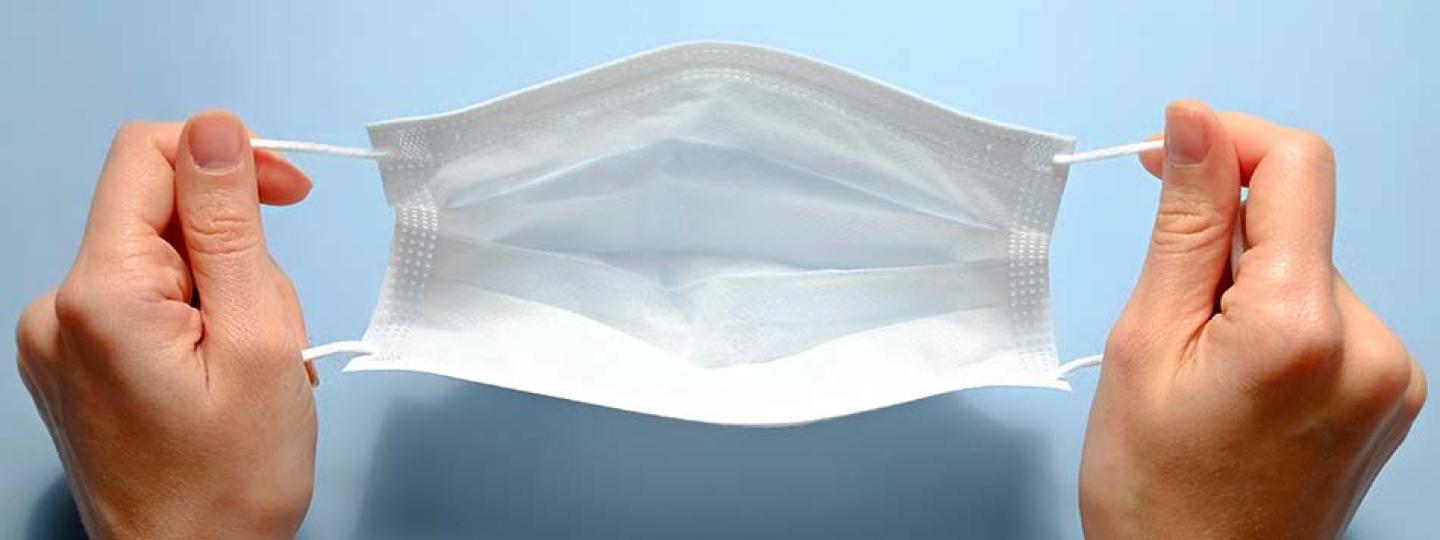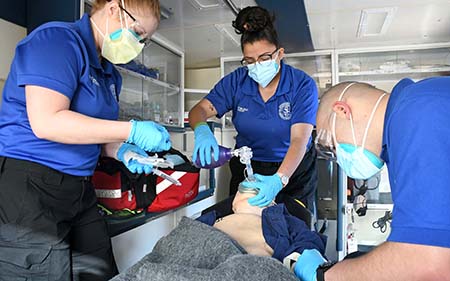EMS program partners with CDC for infection control education

The San Jacinto College Emergency Medical Services Program joins the frontlines of infection control education through CDC's new Project Firstline.
Beginning in June 2021, San Jac numbered among 16 technical and community colleges nationwide to join the pilot initiative, a partnership among CDC, the American Hospital Association, and the League for Innovation in the Community College.
According to CDC, COVID-19 has "underscored gaps in infection control knowledge and practice" nationwide. The initiative will give future nurses and other medical workers infection control knowledge so they and their patients stay safe in health care settings.
"We look forward to creating a community of practice for infection control, where faculty and practitioners work together on innovations in infection control education," Sylvia Gallegos, EMS program director, said.
EMS faculty completed a seven-week summer intensive, meeting virtually three times a week to collaborate with everyone else involved in Project Firstline. They added more infection control content to current curriculum and planned hands-on learning opportunities in the classroom and at clinical sites.
In typical classes, EMS students learn about basic pathophysiology, epidemiology, and safety. This fall and next spring, they are also expanding their understanding of the basic science of viruses, source control, PPE, and environmental cleaning and disinfection.
The EMS program will share the resources with other San Jac health science programs and clinical affiliates, where students get real-world experience.
EMS student Troy Petmecky always felt a pull toward the medical field. In fall 2020, he enrolled in the North Campus program, looking for a change and a new goal to reach.
"The semester passed, and I was hooked," he said. "I realized that this field of work was exactly what I wanted."
Petmecky remembers discussing infection prevention and protective measures early on, but the expanded curriculum has taken that to the next level. Students practice bodily substance isolation during medical simulations and other specific techniques for the medical field. But they also cover everyday disinfection and handwashing.
"Project Firstline explores infection control more in depth than our standard education, which helps us be more prepared for fringe situations," he said. "Additionally, it gives us a more in-depth knowledge base to relay to other folks that haven't had our same education."
COVID-19 has brought to light cracks within our health care system that we must address.
Michelle Katemauswa, who holds a bachelor's degree in global health and psychology, joined the EMS program to gain medical field experience before pursuing a physician assistant program.
Katemauswa isn't surprised EMS training focuses more on the consequences of infections rather than causes and prevention, but the pandemic has shown the need for change.
"Most of the written resources we're learning from haven't been updated to reflect what EMS looks like now during the pandemic, which can cause a bit of a disconnect between knowledge and practice," she said. "Project Firstline helps fill in some of those gaps by providing us with the resources to understand COVID-19 as a disease, SARS-COV-2 as a virus, and important infection control measures to keep us, our crew, and our patients safe."
Besides giving San Jac instructors and students a valuable toolkit, Project Firstline has given them a voice to shape the future of infection control processes and education.
"I believe health care as a whole has learned some very valuable lessons from the pandemic," Gallegos said. "COVID-19 has brought to light cracks within our health care system that we must address. As educators, choosing a proactive way of preparing our students for the future and their role in healthcare is a big part of that."
Learn more about Project Firstline at cdc.gov/infectioncontrol/projectfirstline.

